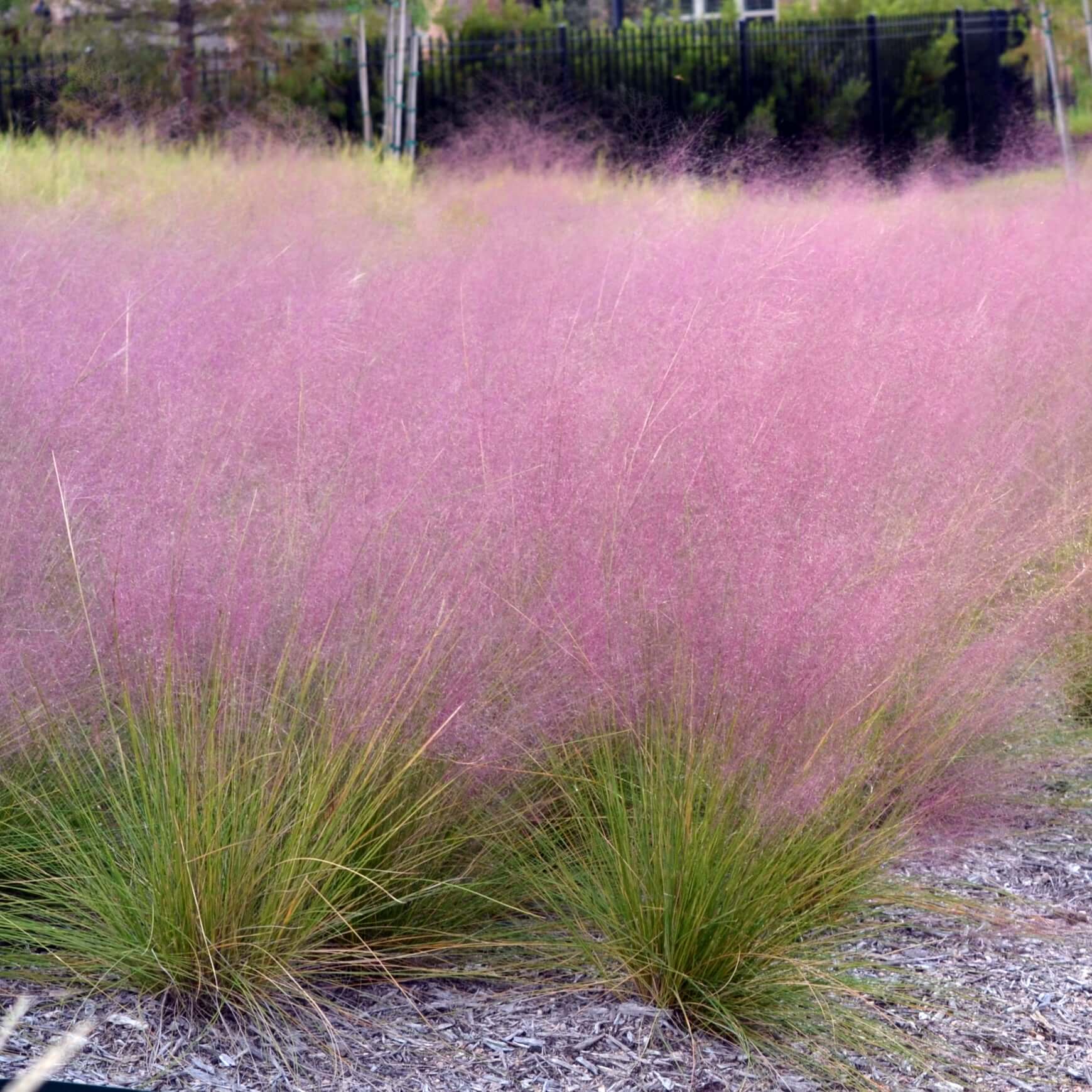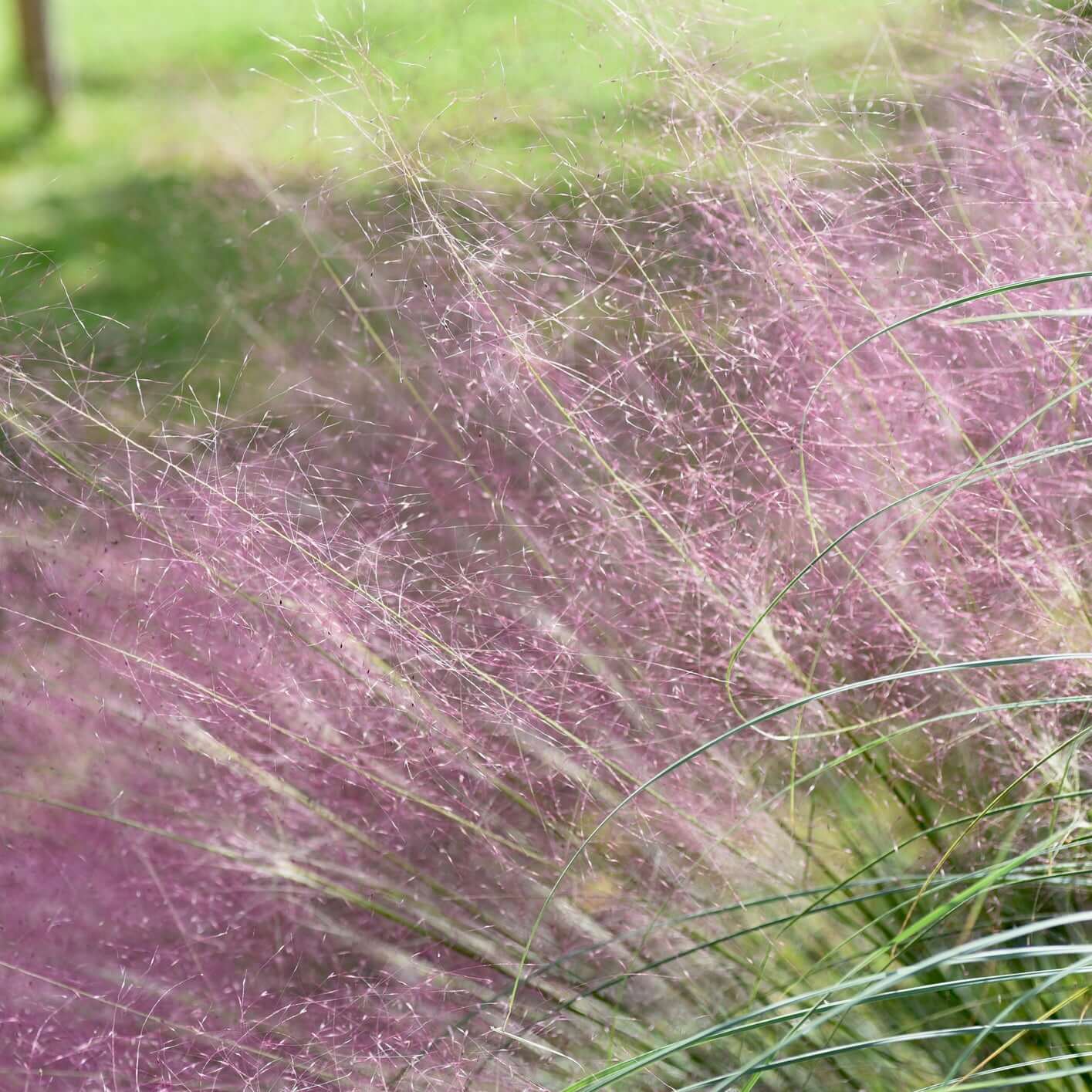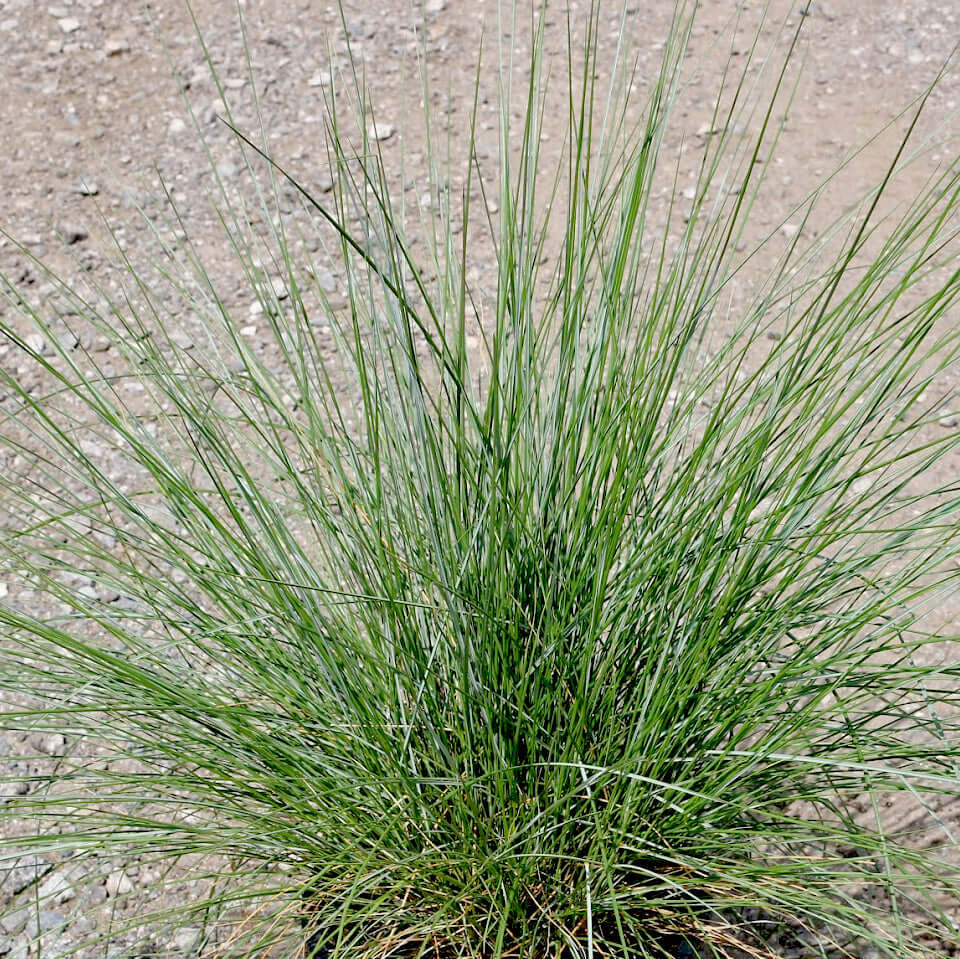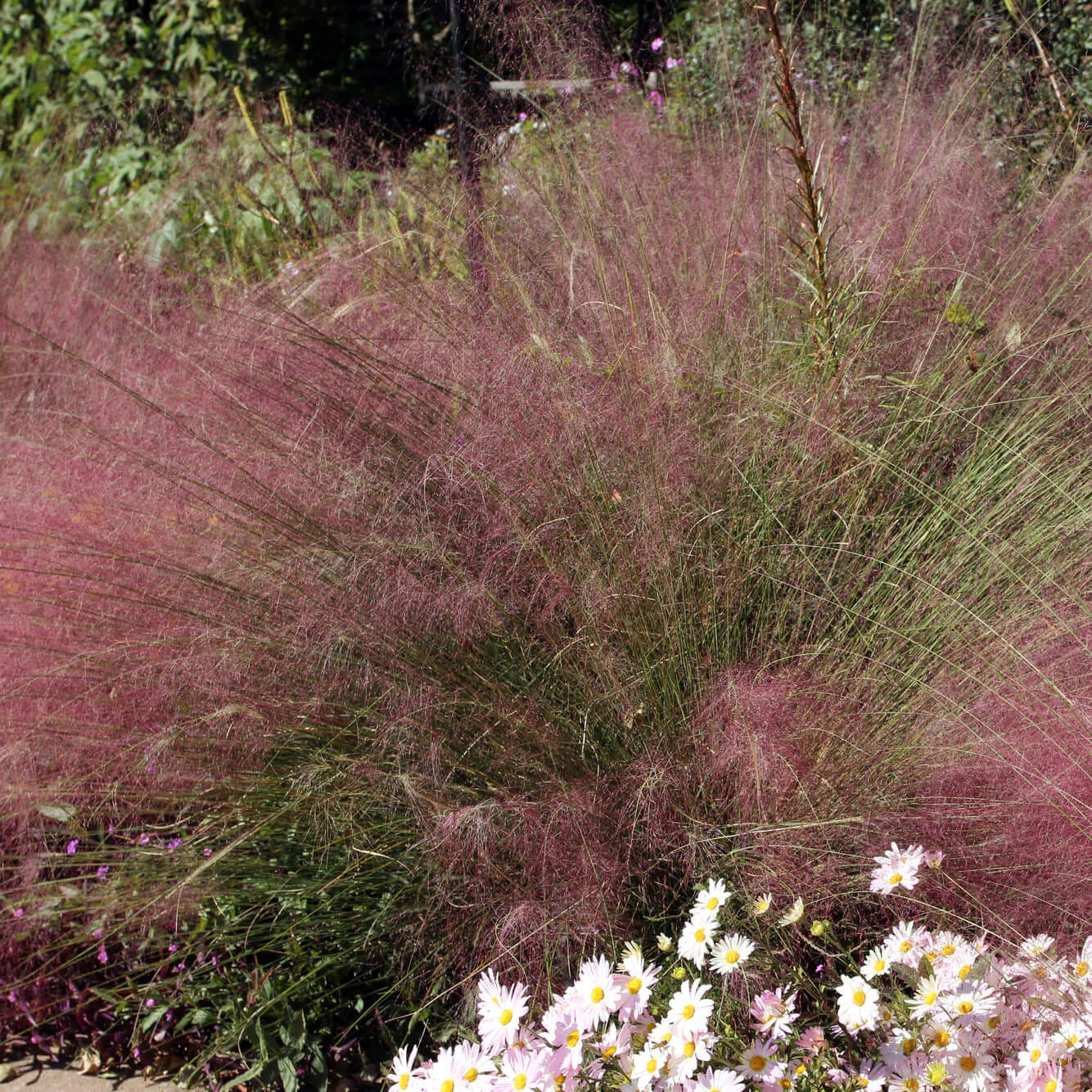
Pink Muhly Grass
Muhlenbergia capillaris
24-hour money-back guarantee
Free delivery on orders over $349
Delivery
Big Project? Call 888-444-1126 for bulk rates!
Muhlenbergia capillaris is a beautiful ornamental grass that thrives in the California landscape. It adds a stunning visual impact to any garden with its attractive and delicate burgundy-pink flowers that cover the landscape in a pink cloud-like haze.
Pink Muhly Grass, also known as Hairy Awn Muhly or Purple Muhly, is a perennial clumping grass that produces pink to lavender-pink, airy inflorescences in the fall that float above the foliage. The blooms have a fluffy and delicate texture and add a unique look to any garden. The foliage is narrow, glossy green with a graceful arching habit that actively grows during the warmer months and goes dormant during winter as the foliage changes to some degree of brown depending on the regional microclimate. New growth emerges in spring as Muhlenbergia capillaris awakens from dormancy.
Low maintenance and drought tolerant, Pink Muhly Grass is versatile and can be used in many garden designs, including meadow, woodland, borders, rock gardens, and mass plantings. The airy inflorescences provide visual interest even in the winter months when the seed plumes are dried and light brown, making this grass an excellent choice for a winter garden.
Pink Muhly Grass is a stunning grass that adds visual interest to any garden. It's versatile and drought-tolerant, making it an excellent choice for the California landscape. The fluffy blooms and graceful arching foliage provide a unique look that can complement many garden styles.
How tall and wide does Pink Muhly Grass grow?
When does Pink Muhly Grass bloom?
What kind of sunlight and soil does it prefer?
How much water does it need?
1-3 ft.
2-3 ft.
Occasional
Perfect Your Landscape With Expert Help
Customize your yard with confidence. Schedule your free consultation today and bring your outdoor space to life!




